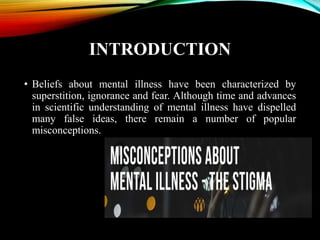
Challenging the Foundations of Psychology: What If Much of Our Understanding of the Mind Is Incorrect?
In a courageous and timely reassessment of some of psychology’s most profound beliefs, eminent psychologist Michael W. Eysenck presents a transformative thesis in his latest work, Rethinking Psychology: Finding Meaning in Misconceptions. Drawing on over fifty years of research and scholarly knowledge, Eysenck provides a realistic yet freeing critique of numerous essential assumptions within psychology. His findings pose significant questions regarding the authenticity of widely accepted notions concerning personality, gender, intelligence, mental health, and even memory.
Myths at the Heart of Contemporary Psychology
Eysenck’s extensive scrutiny disputes prevalent psychological principles not only taught in educational settings but also deeply embedded in societal thinking. Fundamental to his argument is the assertion that many of the concepts people accept without question about human nature endure more due to their comforting or intuitive nature rather than being substantiated by empirical evidence.
For instance, the widely accepted view that parenting is the key factor in shaping adult personality is revealed to be deceptive. Although upbringing does have an impact, studies suggest that genetics plays a significantly more vital role. Siblings raised in the same home often display greater differences than similarities, and adopted children frequently reflect their biological parents more than their adoptive ones regarding personality characteristics.
Gender Differences: More Complex Than We Assume
Cultural gender stereotypes infiltrate our lives, molding everything from job selections to emotional responses. Nevertheless, Eysenck’s review of research challenges the idea that psychological differences between men and women are fundamentally rooted. While some average distinctions, such as those in aggression or empathy, are recognized, these differences are frequently exaggerated and largely influenced by cultural and social contexts.
Furthermore, variations within groups (differences among men or among women) often significantly exceed variations between groups. This indicates that the psychological differences within women themselves—or men themselves—can be greater than the average difference seen across sexes.
Disproving Cognitive Enhancement Fallacies
In an era where self-improvement is in vogue, brain-training games and cognitive-boosting programs have emerged as multi-billion-dollar sectors. But do they fulfill their promises?
Eysenck responds with a firm “no,” asserting that there is minimal to no evidence to suggest these programs lead to meaningful or widespread enhancements in cognitive abilities. Genetic predisposition continues to be the most reliable predictor of baseline intelligence, and although cognitive performance can be sustained or improved through lifestyle choices like aerobic exercise or continuous learning, short-term “training” does not result in enduring benefits in critical thinking or intelligence evaluations.
Mental Health: The Intricacies Beyond Experience
Perhaps the most socially significant aspect of the book addresses mental illness. The prevalent assumption that mental disorders like depression or anxiety arise solely from past traumas is scrutinized. Instead, Eysenck champions a biopsychosocial perspective, which incorporates not only experiences and trauma but also genetics, brain chemistry, and social support mechanisms.
Additionally, the current dependence on diagnostic classifications from systems such as the DSM-5, which currently recognizes over 500 distinct disorders, is examined critically. Eysenck contends that such frameworks obscure the subtle and overlapping characteristics of many psychological conditions, resulting in fragmented or overly simplistic treatments.
He also critiques the excessive reliance on pharmacological solutions. Although medications like antidepressants can effectively manage symptoms, they often do not address the underlying problems. Increased relapse rates among patients receiving exclusively drug-based treatment imply that psychotherapy should not be seen as an optional or secondary approach.
The Flawed Mechanisms of Memory and Perception
Rethinking Psychology also explores how we perceive and recall the world, uncovering concerning misunderstandings regarding the accuracy and dependability of memory. Eysenck highlights the scientific discoveries of memory researcher Elizabeth Loftus, illustrating how adaptable and reconstructive human memory can be. This carries significant implications, particularly in areas such as criminal justice, where eyewitness accounts remain highly influential yet can often be dangerously inaccurate.
The book emphasizes that memory is not an infallible recording mechanism. It is influenced by suggestion, personal biases, and even the simple passage of time. Acknowledging the imperfections of memory can reshape how we interpret our experiences and assess the accounts of others.
Why Myths Endure—and How to Think Beyond Them
What perpetuates these psychological myths? Eysenck suggests that the answer is rooted in human nature itself. Through mechanisms like confirmation bias and motivated reasoning, individuals are drawn to interpretations that reaffirm their preexisting beliefs or provide simplified answers to complex life questions. These inclinations help myths to persist, even in the presence of contradictory evidence.
Moreover, simplistic media representations, the commercial motivations of self-help sectors, and poorly examined academic research contribute to the public’s limited comprehension of psychological science.
Towards a More Evidence-Based Psychology
Eysenck does not merely outline problems—he advocates for a more robust, scientifically-informed discipline. His book serves as a rallying cry for critical thought, rigorous methodologies, and public enlightenment. He encourages